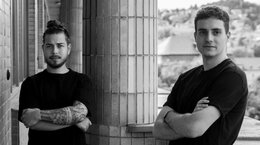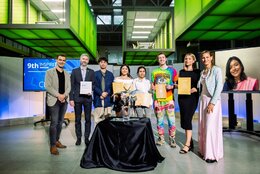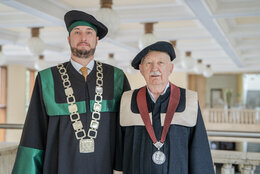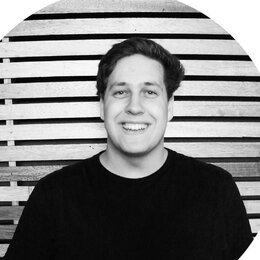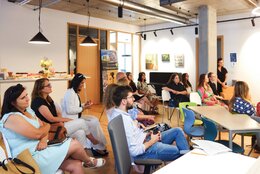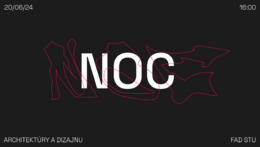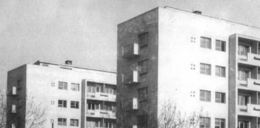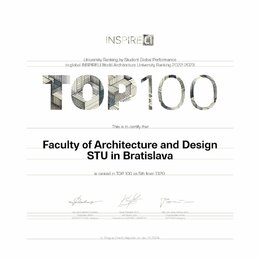Cornelius van der Westhuizen should soon finish his postgraduate studies at FAD STU, during which he was mainly devoted to monument restoration. How did someone come from South Africa to Slovakia and how did he experience life in Bratislava what an experience life was for him in Bratislava?
Why did you decide to choose FAD STU as the place of your doctoral studies? How did you find out about the possibility of studying at our faculty? Did this information come to you through formal or informal channels?
I learned this by way of a website that offered insight about the possibilities of doctoral studies all over the world. I sent emails to about four or five universities that had listed the department of architecture and urban planning to learn something about more about their offers. Quite by chance I noticed that there were also links to universities in Ljubljana, Istanbul, Budapest and Bratislava. Zuzana Turlíková wrote to me from your faculty almost immediately. She, invited me to a webinar organized by Ján Legényi and Peter Morgenstein. There weren't many of us present, maybe three or four other PhD candidates took part besides me. I was invited to submit my portfolio, CV and research proposal. I think it might have been on Friday, and I received a reply from professor Henrieta Moravčíková already on Monday, which surprised me quite a bit, as I did not expect such a quick answer. She told me that she had read my proposals, that she found them interesting, that she saw connections between my focus area and her own focus. At the next online meeting, we already talked about possible topics for my research. It was a very positive meeting, from the very beginning it was a positive experience, so she invited me to fill out some forms and take an exam. This constant communication really helped me to choose Bratislava. I felt positive that someone actually answered me, even if she couldn't help me herself, at least she told me, who should I turn to, which I greatly appreciated.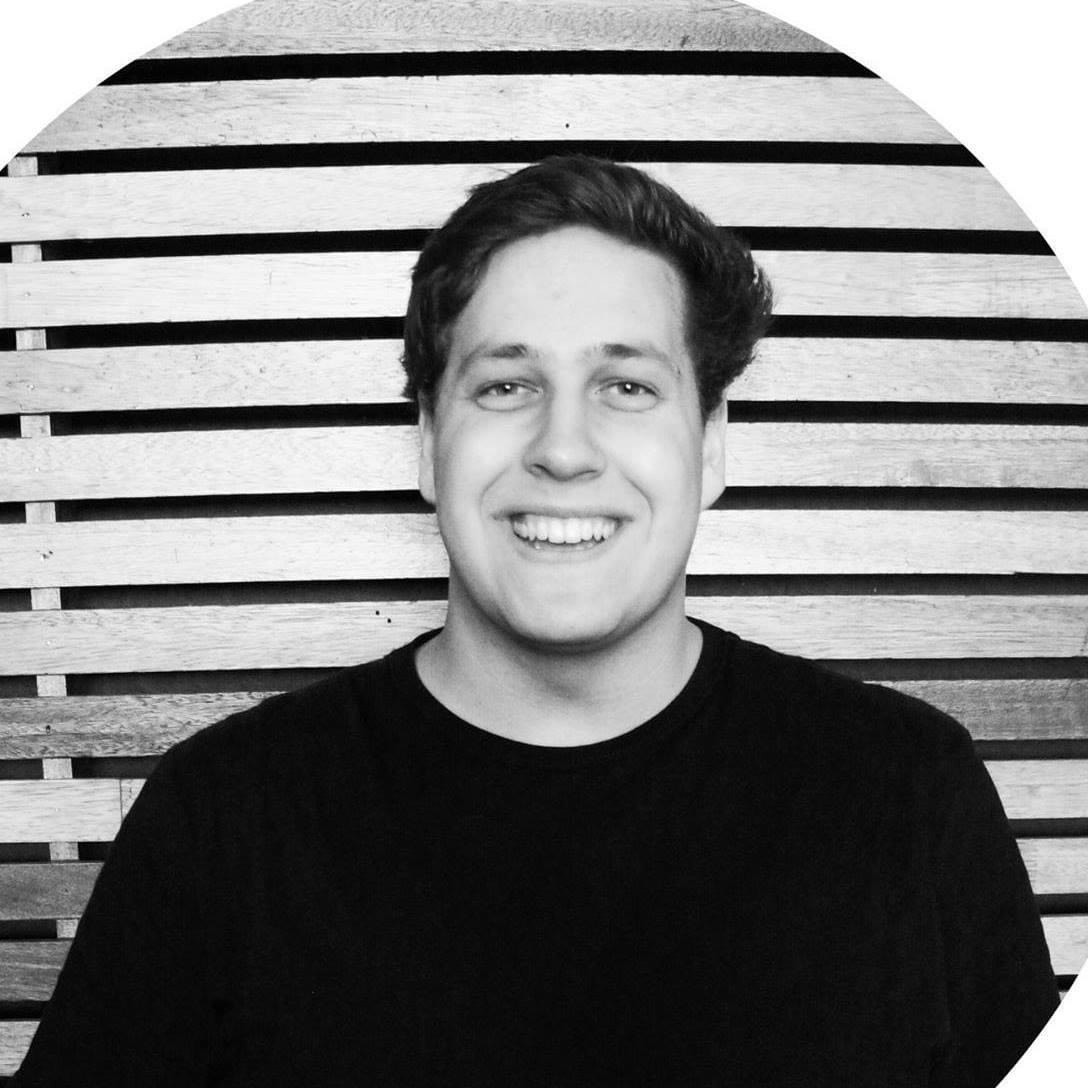
Was the exam itself a stressful experience?
Not at all, it was more difficult to secure all the necessary documents for the commission. I had to have all the certificates from my previous studies. Then I received the information that I was accepted.
Where did you study before?
I completed a French language course in Montpellier, my first study of architecture however was in Pretoria at the University of Technology, which operates on a structure similar to STU. I then worked for about 2.5 years in a design office, and architectural studio, which had to close during covid. In South Africa there isstill a big slowdown in construction activities due to the pandemic, which probably won't change anytime soon. I felt that I was already there I did everything I could in South Africa, and it was time to move on.
Why were you even interested in schools from Central Europe?
During the pandemic, my professor pushed me to continue with postgraduate studies. South African universities did not list a topic that suited me; they generally deal with innovation not history. I always wanted to study in Europe, but when I contacted schools in France, Italy, and Germany, they answered only after a long time, or I only received a standard response from them that didn't answer my questions. Everyone who played an important role in my academic career at home advised me to go to Europe, some had even experience with universities from Central Europe - from Budapest and Brno. They also told me that I would be in a better space in these countries -also thanks to my knowledge of English -, as in Anglo-Saxon countries such as Australia or New Zealand, or the UK itself, where everyone speaks English, and therefore no one is special. So now I'm here pretending to understand Slovak. At the same time, I can only say one thing in Slovak sentence: "I don't know". “Neviem”.
So there weren't any roots in your family from this part of the world?
No, it was more of a happy accident. In the beginning - yes, I admit - I confused Slovakia and Slovenia.
What did you actually experience during those three years at FAD?
I offered my experience for the Cool Noveau project and during the presentation of Vega projects, and I used my graphic skills for posters and books. I have improved my presentation skills , as I often did not manage to finish my projects on time, so I had to learn to "talk" myself out of problems. I was working with docent Urlandová and the Erasmus group of students this semester and we have completed the reconstruction project of the Synagogue in Svätý Jur. This project was given to us by the Bratislava self-governing region, which owns the synagogue. Hopefully, some of the ideas from our proposals will be incorporated in an architectural competition that is planned for the reconstruction of this monument.. I presented theory classes with docent Nina Bartošová. , I also taught the history of architecture with Martina Jelínková and Naďa Hrašková. And I have worked , with Henrieta Moravčíková on Reflections of Architecture since my first year. This project forced me to immediately enter communication with foreign architects and speakers. I also collaborated on the publication of a book on Norwegian and Polish architecture. We would like to continue with Ukrainian Architects next semester. So, I gained very diverse experiences.
What awaits you in the coming years? Do you feel like you want to move on again or would you prefer to stay in Slovakia?
I wrote to Dean Branislav Puškár that I would like to continue working for your faculty as they gave me a great opportunity and I would like to give something back. I worked with international students and got along with them very well. I think at this stage I like teaching very much. I don't have a formal answer yet, but they expressed an interest in my staying here for some time. Unfortunately, I would also need a more specific answer, because my residence permit also depends on it.
What were your experiences with our police or with some other Slovak authorities?
I had to bring a translator to the foreign police because no one there spoke English, which I thought was strange, since it is a department that only deals with foreigners. It wasn't a problem in the end, a friend helped me, I was just surprised. But I cannot say that I experienced a single moment - either in the offices or when communicating with people - when someone would not want to help me even though there was a language barrier between us. I can't complain about Slovaks, in general, I didn't have a bad experience either with the authorities or with the staff of the faculty. I'd like to believe I wasn't annoying either. 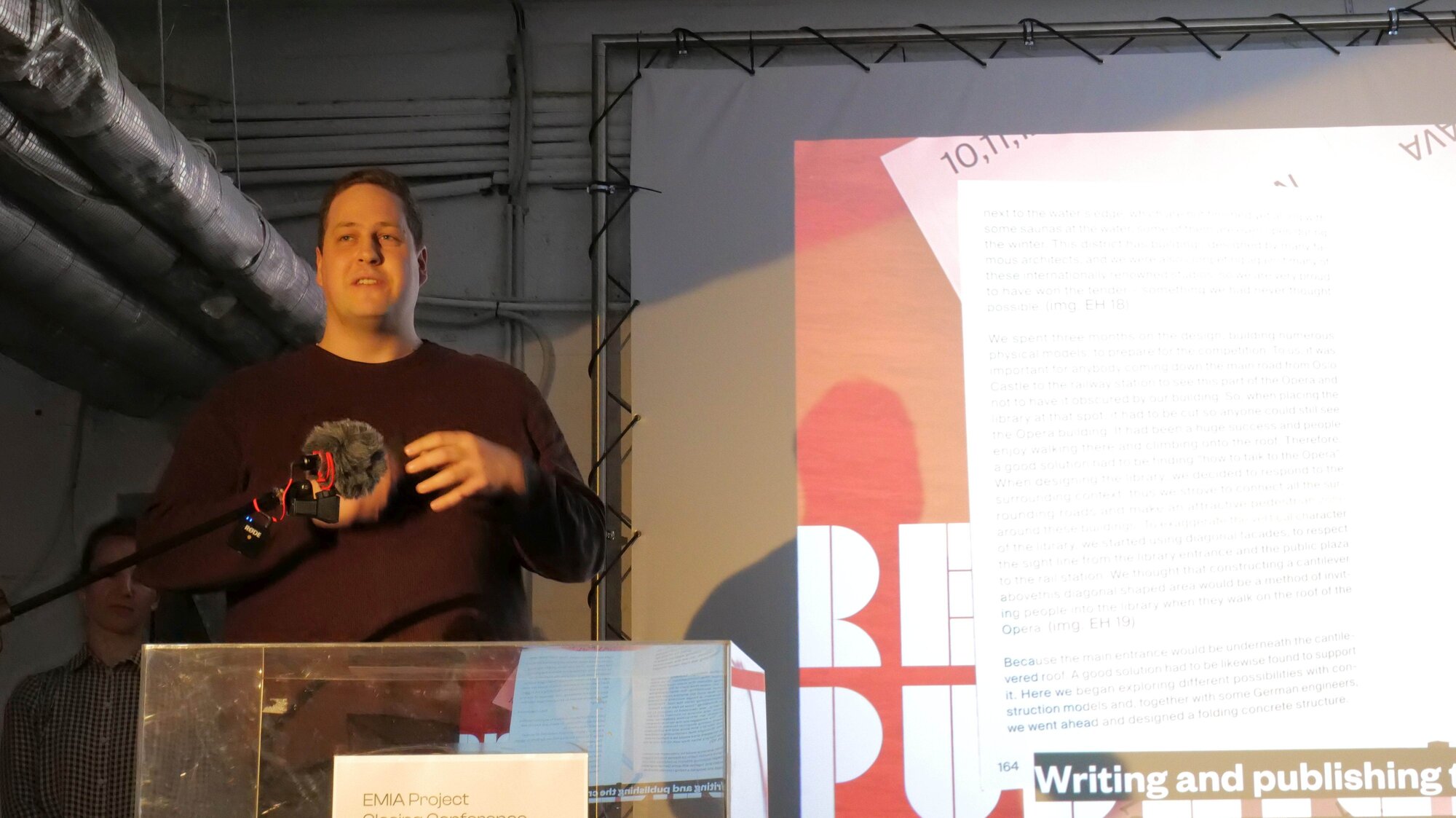
Was there anything shocking upon your arrival at Schwechat airport in Vienna?
Nothing really, just the language itself surprised me as it was so different from what I before knew, I couldn't help myself with either French or German, which I understand. The only thing that still can still catch me off guard, is the weather. I expect that it will be warm in the summer, but it surprises me how warm it is, the same in winter, I didn't expect it to be so cold. I talked with several foreigners living here and they all say the same thing, the weather is the least predictable in Slovakia.
Your professional interest was mainly in the field of renovation of historical monuments. Were you somehow surprised by our approach, which is very protective?
Your laws are stricter than in our country, where monument research is not such a rigid discipline, so I had to learn a lot and very quickly - something which I liked.
Perhaps overall, at the European level, we have a stricter approach to the protection of monuments.
Yes, but each country treats what it considers most valuable differently, each region perceives it a little differently, and local authorities also have their requirements and restrictions. I can't quite clearly say which approach is worse and which is better, in the end what is important is how all these constraints will affect your architectural reasoning. I would also like to design new things.
Are you interested in something other than architecture?
Apart from the academic stuff, I also did fencing since my high school days, and I play the cello; I was a member of the school orchestra. My friends and I went to play in clubs, which was fun and I miss this in Slovakia. Any transport of my instrument is my future nightmare, I don't know if I'm emotionally ready for that yet. But I can do a lot of other things. What I most definitely don’t know how to do is to sing.
Your mother has already visited our region, right?
Yes, she likes to travel, she has quite an adventurous nature, we travelled a little around Slovakia together, Czechia, she went to Vienna as well. But I couldn't advise her how to dress, since, as I say, the weather always surprises me in your place. 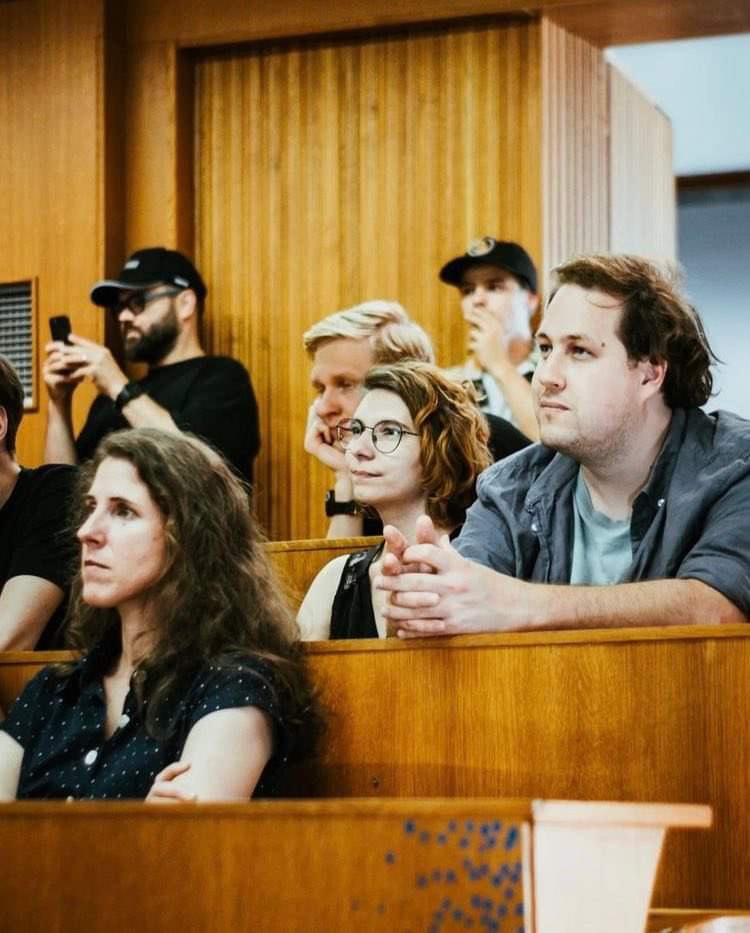
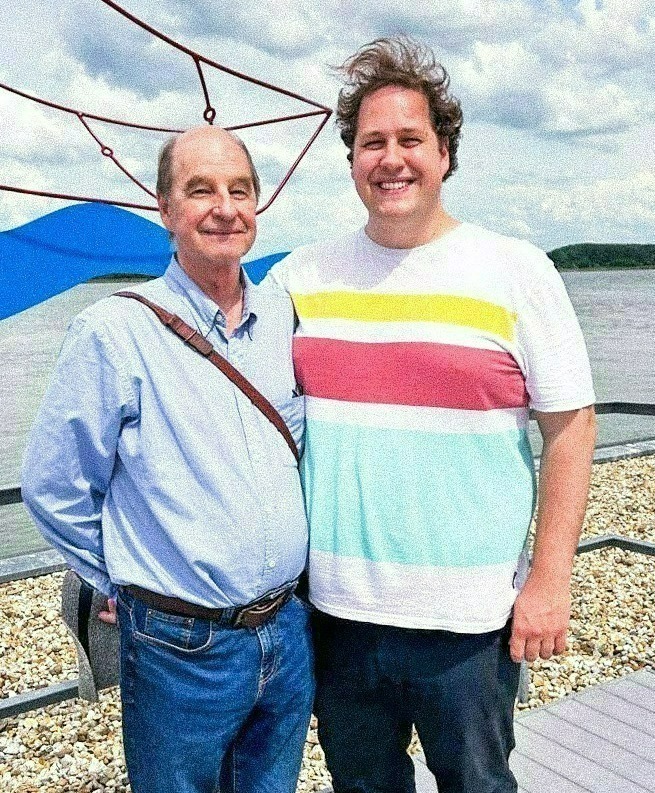
Have you made acquaintances with foreign students who live in Slovakia. What is the life of a foreign student in Bratislava like?
To be honest, I'm quite the social type, at least it's rather easy for me to make contacts. I have some South African friends who teach in Bratislava, we meet sometimes, but in general I have many friends among Slovaks as well. The group of students from the Erasmus exchange is very closed; they usually meet only with each other, which is a pity. It would be very beneficial if they could also work with the Slovak students on projects. It would be rewarding for both parties because if you have something to do in a foreign language, you will immediately think about it completely differently. I have very good relationships with the Erasmus students, but I prefer not to associate myself exclusively with one group only. I have the feeling that the Slovak doctoral students are also enjoying my presence. At least, I think so, why would they otherwise continue inviting me somewhere? Maybe they just feel sorry for me? I do not know. It is certainly very practical to get to know the locals, because they always warn me in advance when there are public holidays in Slovakia. It happened to me more than once that I did not realize that all the shops would be closed. In our country only certain institutions are closed on public holidays, but most shops remain open.
Would you recommend Slovakia to foreign students interested in studying or tourism?
Most people still think of Slovakia in the context of Czechoslovakia. I certainly would recommend Slovakia, it is still relatively affordable, the beer is cheap, the countryside is beautiful, and many interesting places are still quite unknown to many people. I certainly would like to recommend your schools to students from South Africa who would like to do a master's degree or complete doctoral studies. As we have a similar approach to high school education, we are at a similar level, it is relatively easy to adapt from one school system to the second. Even at the university itself, many interesting things are happening, maybe they are not quite well communicated, as often only information in Slovak reaches us. But if someone were to ask me, I would say, it's worth it. It will take some time before one is fully involved in school life. It might take a while to break down people's barriers so one can better cooperate with them, but for the rest I think it's worth it. It's quite an interesting experience.

